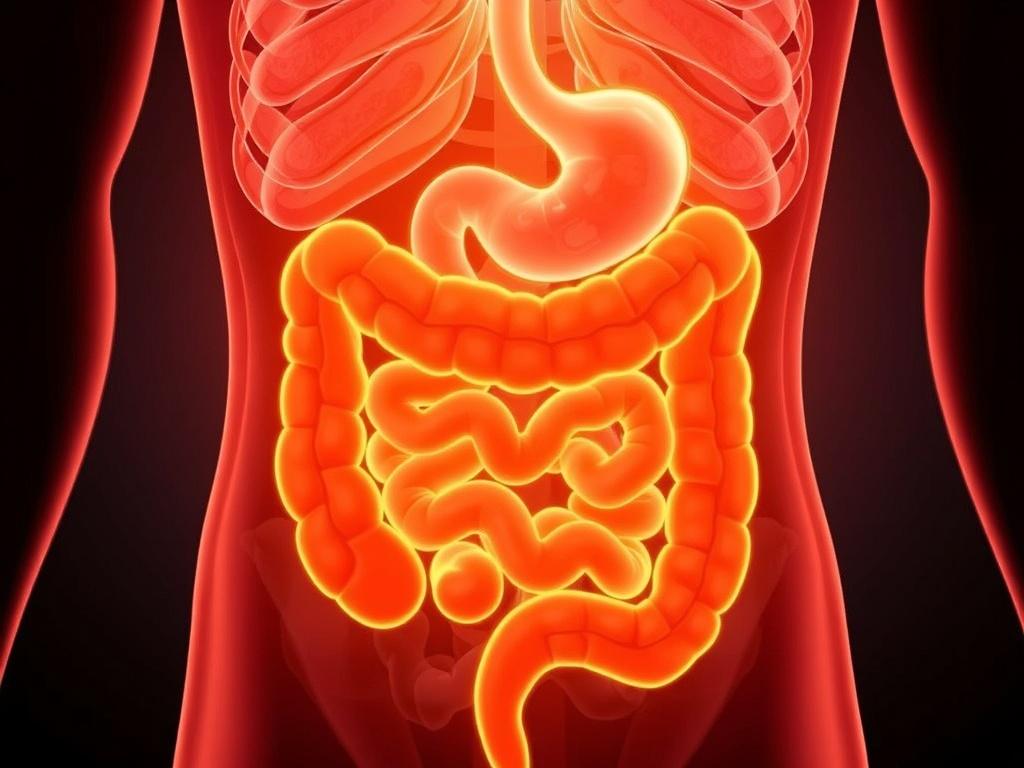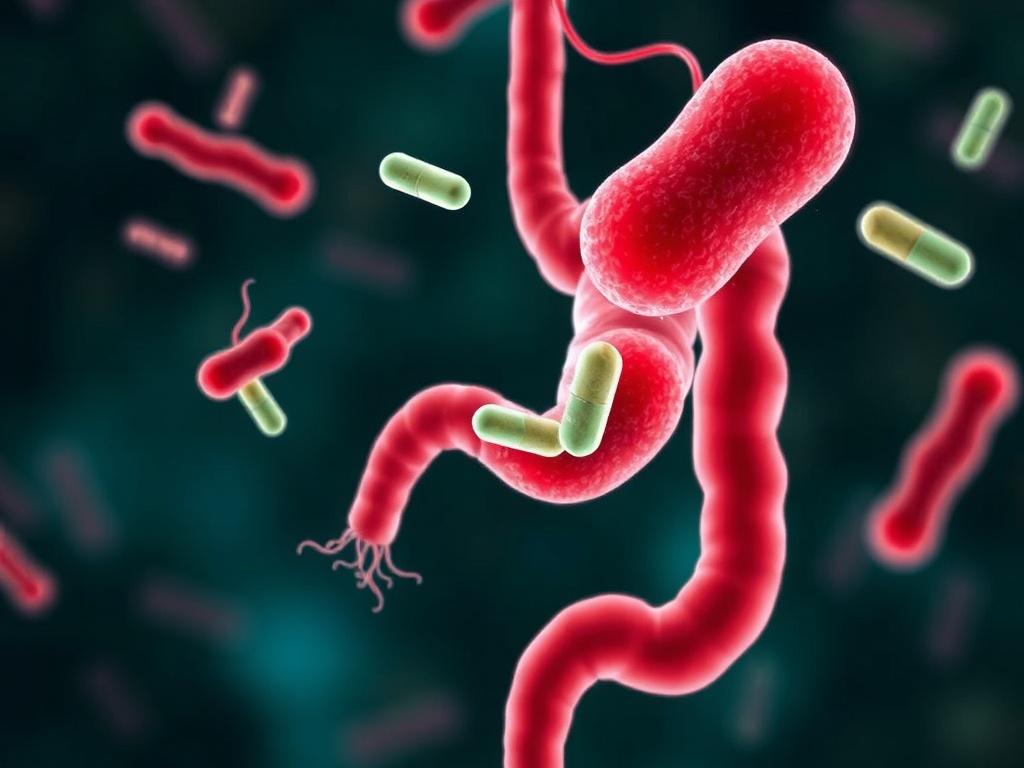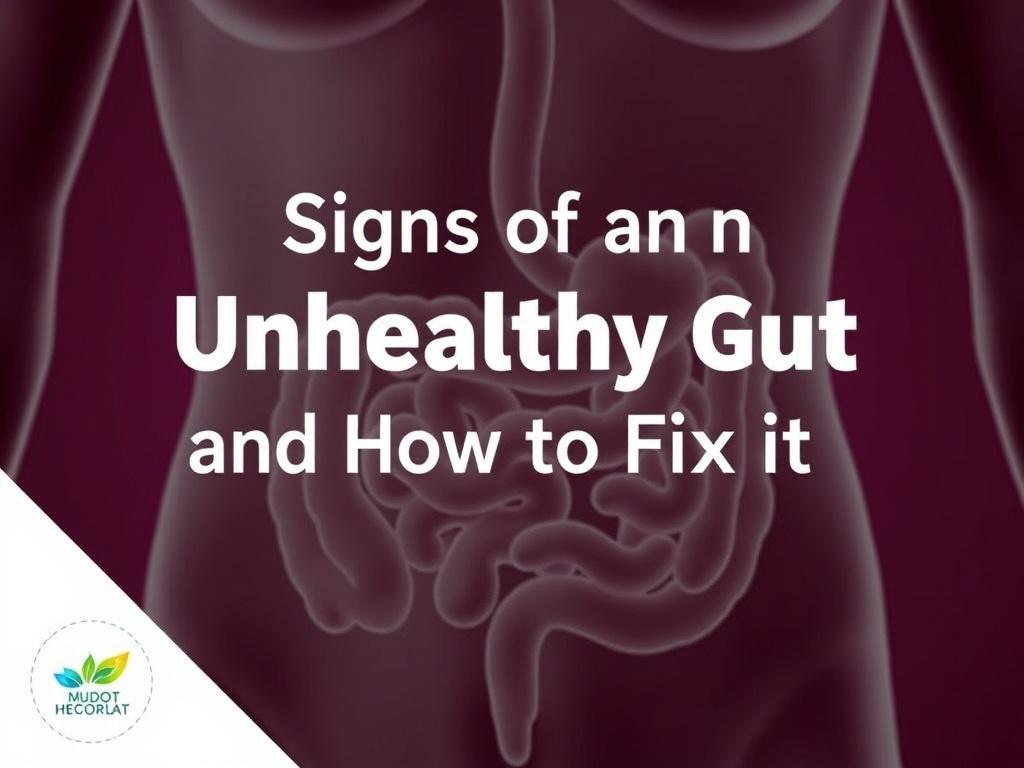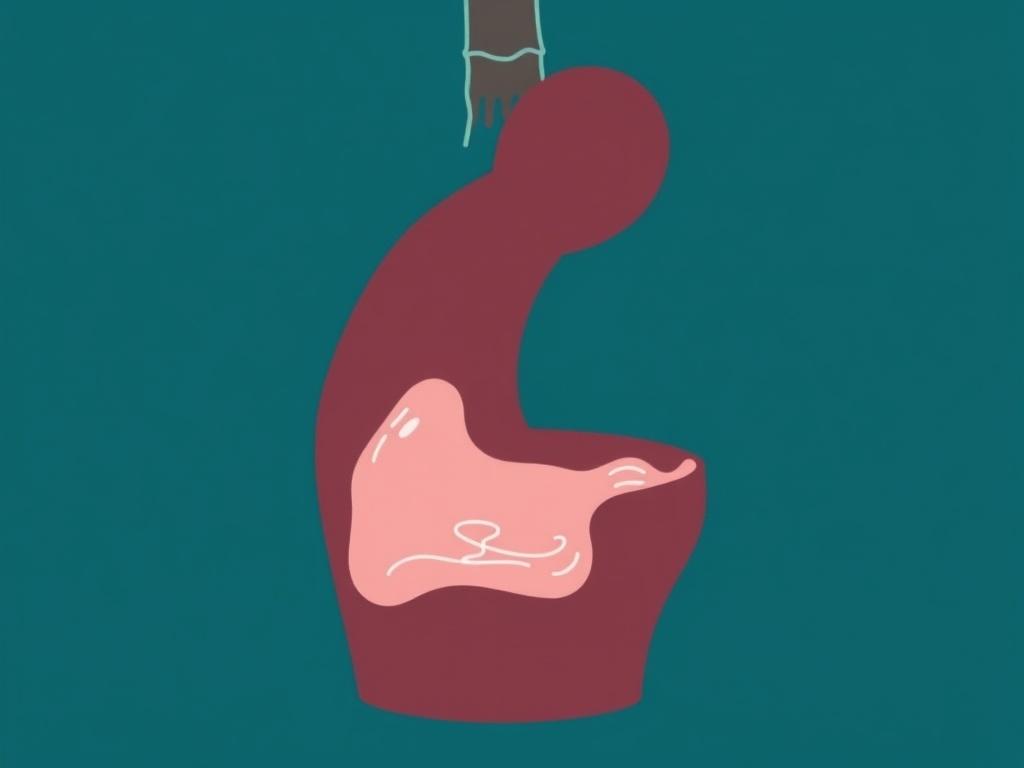When we think about the effects of smoking and alcohol, the first things that often come to mind are lung damage or liver disease. While these are undoubtedly serious concerns, many people overlook how these habits quietly wreak havoc on the digestive system, particularly the intestines. Our intestines play a vital role in nutrient absorption, immune function, and overall health, making it crucial to understand how smoking and alcohol can affect them. This article will explore in detail how these substances harm your intestines, what symptoms to look out for, and steps you can take to protect your gut health.
The Intestines: A Brief Overview
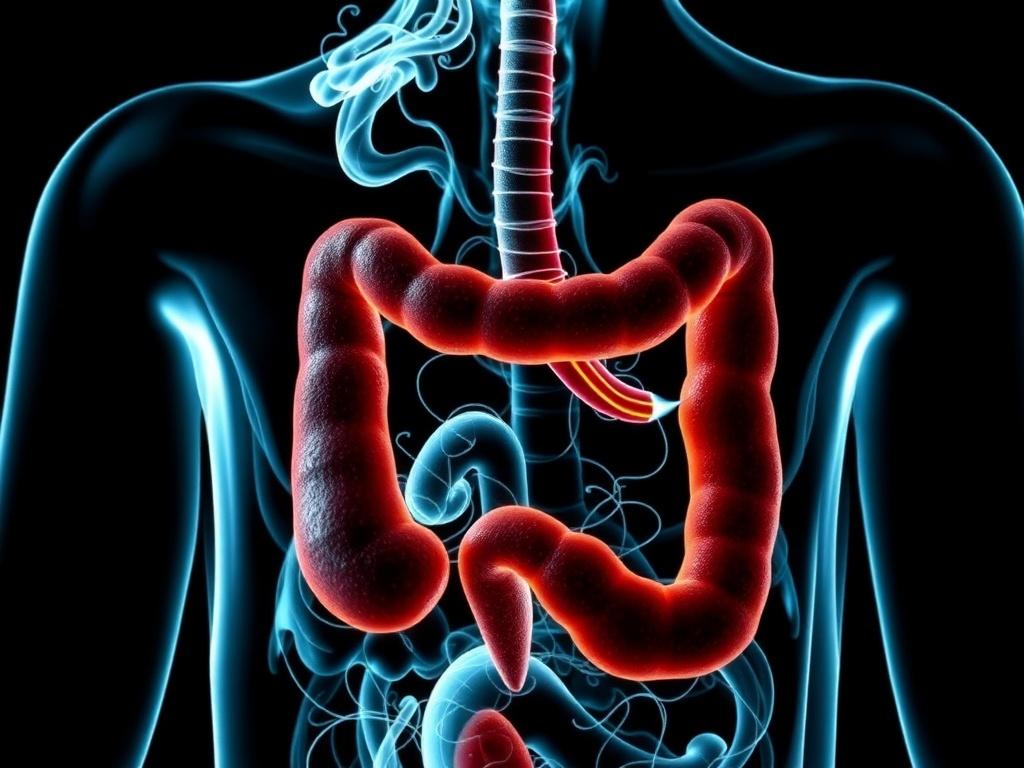
Before diving into the impact, it’s important to understand what your intestines do. The intestines consist of two main parts: the small intestine and the large intestine (or colon). The small intestine breaks down food using enzymes and absorbs vital nutrients, while the large intestine absorbs water and forms stool for elimination. Together, they form a complex system not only for digestion but also for maintaining your immune system and microbiome—the friendly bacteria that keep your gut balanced.
Many don’t realize that the intestines are home to trillions of microorganisms. These gut bacteria help digest food, produce vitamins, and protect against harmful pathogens. Keeping this intricate environment healthy is essential for overall well-being. Unfortunately, smoking and alcohol disrupt this balance, causing significant intestinal harm over time.
How Smoking Harms Your Intestines

Smoking is more than just a risk factor for lung cancer and heart disease; it directly contributes to gastrointestinal problems. The chemicals in cigarette smoke enter your bloodstream and eventually reach your digestive tract, undermining its function in various ways.
Impact on Gut Microbiota
One of the earliest effects of smoking on your intestines is the alteration of gut microbiota—the community of microbes living in your digestive tract. Studies have shown that smoking leads to a decrease in beneficial bacteria such as Lactobacillus and Bifidobacterium, while increasing populations of harmful bacteria. This imbalance, often called dysbiosis, can pave the way for inflammation, infections, and impaired nutrient absorption.
Inflammation and Damage to the Intestinal Lining
The intestinal lining is a thin layer of cells that acts as a barrier, preventing harmful substances from leaking into the bloodstream. Smoking exposes this lining to reactive oxygen species and toxins that increase oxidative stress and cause inflammation. Over time, chronic inflammation can lead to damage, making the intestines more permeable—a condition often referred to as “leaky gut.” This can trigger immune responses that worsen symptoms like pain, bloating, and diarrhea.
Increased Risk of Intestinal Diseases
Due to its damaging effects on the gut, smoking significantly raises the risk of developing intestinal disorders such as Crohn’s disease, peptic ulcers, and colorectal cancer. For example, smokers are up to twice as likely to develop Crohn’s disease, a chronic inflammatory disease of the intestines, compared to non-smokers. Smoking also slows down healing, making intestinal ulcers more painful and difficult to treat.
Slowed Intestinal Motility
Another adverse effect of smoking is the alteration of intestinal motility, meaning how food moves through your digestive tract. Nicotine and other compounds in cigarettes can slow this process, contributing to constipation and discomfort.
The Effects of Alcohol on the Intestines
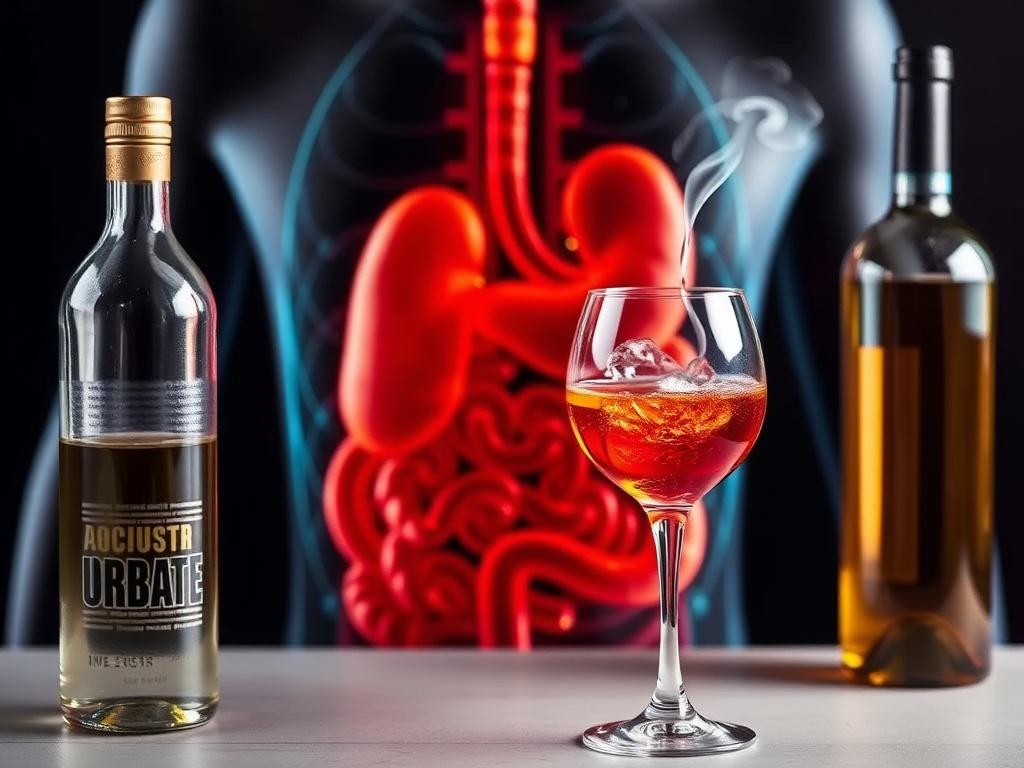
While moderate alcohol consumption is socially common, excessive drinking poses serious threats to the intestines. Alcohol acts as an irritant to the gut lining and disrupts normal digestive processes.
Alcohol and Intestinal Permeability
Much like smoking, alcohol damages the intestinal barrier, increasing its permeability. This means toxins, bacteria, and partially digested food can leak from the intestines into the bloodstream—a condition linked to systemic inflammation and organ damage. This “leaky gut” phenomenon underlies many of the complications seen with chronic alcohol abuse.
Inflammation and Gastrointestinal Distress
Alcohol promotes inflammation in the intestines by triggering immune cells to release pro-inflammatory substances. This inflammation can manifest as abdominal pain, cramping, diarrhea, and nausea. Over time, the irritated intestinal veins and tissues may develop ulcers and hemorrhages.
Disruption of Gut Microbiota
Similar to smoking, alcohol consumption alters the delicate balance of gut microbiota. Beneficial bacteria decrease while harmful strains proliferate. Such microbial shifts are linked to worsened inflammation, impaired immunity, and increased susceptibility to infections.
Interference with Nutrient Absorption
Alcohol damages the cells lining the intestines, reducing their ability to absorb vital nutrients like vitamins A, D, E, and K, as well as minerals like calcium and magnesium. This can lead to malnutrition, even when calorie intake is sufficient, and worsen intestinal and overall health.
Alcohol-Related Intestinal Conditions
Heavy alcohol use increases the risk for intestinal diseases, including gastritis, pancreatitis (where the pancreas is affected but also impacts intestines), and colorectal cancer. Prolonged alcohol damage can lead to fibrosis and scarring that impair normal intestinal function.
The Combined Effects of Smoking and Alcohol on the Intestines
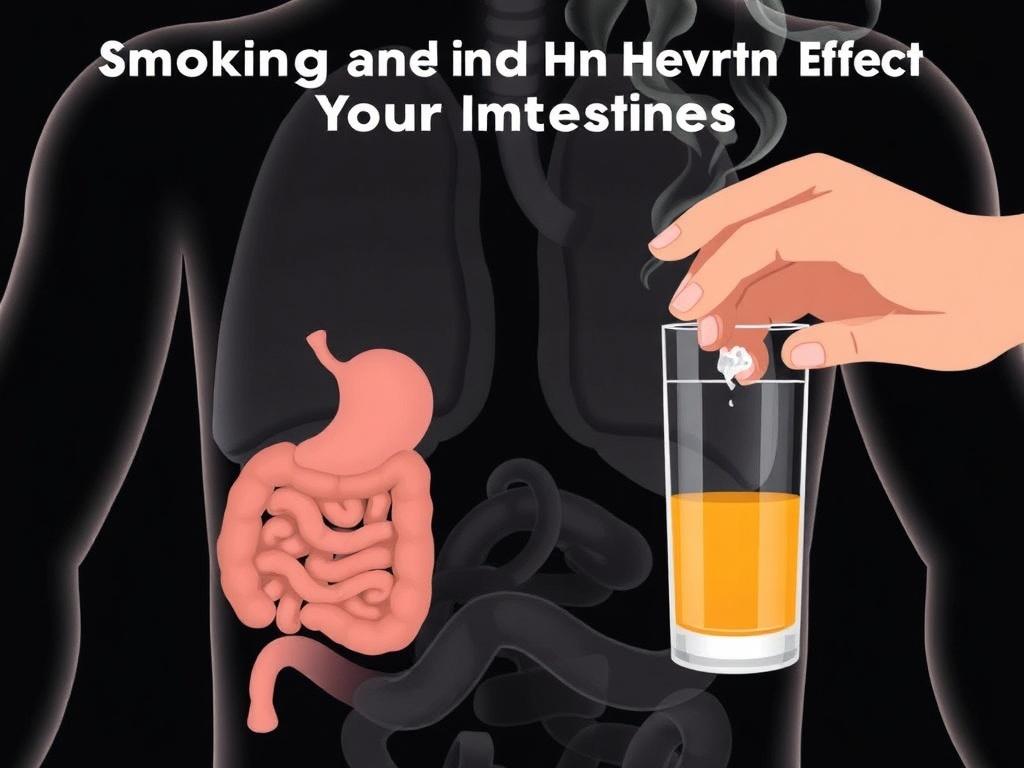
When combined, smoking and alcohol have a synergistic effect that greatly increases harm to your intestines. Here’s a breakdown of how these two substances can interact:
| Effect | Smoking | Alcohol | Combined Impact |
|---|---|---|---|
| Gut Microbiota Balance | Depletes beneficial bacteria; promotes harmful bacteria | Worsens microbiota imbalance | Severe dysbiosis leads to heightened inflammation |
| Intestinal Permeability | Increases permeability (“leaky gut”) | Amplifies permeability issues | Heightened immune activation and systemic inflammation |
| Inflammation | Triggers chronic inflammation in gut lining | Causes mucosal inflammation and irritation | Exacerbated chronic inflammation and damage |
| Risk of Diseases | Elevates risk for Crohn’s disease and colorectal cancer | Increases risk of ulcers and colorectal cancer | Greatly heightened risk for digestive cancers and chronic diseases |
| Motility and Digestion | Slows gut motility | Causes digestive distress, diarrhea, or constipation | Unpredictable motility, worsened symptoms |
The combined use of smoking and alcohol severely compromises intestinal health, making recovery difficult and leading to chronic conditions that affect quality of life.
Symptoms to Watch For
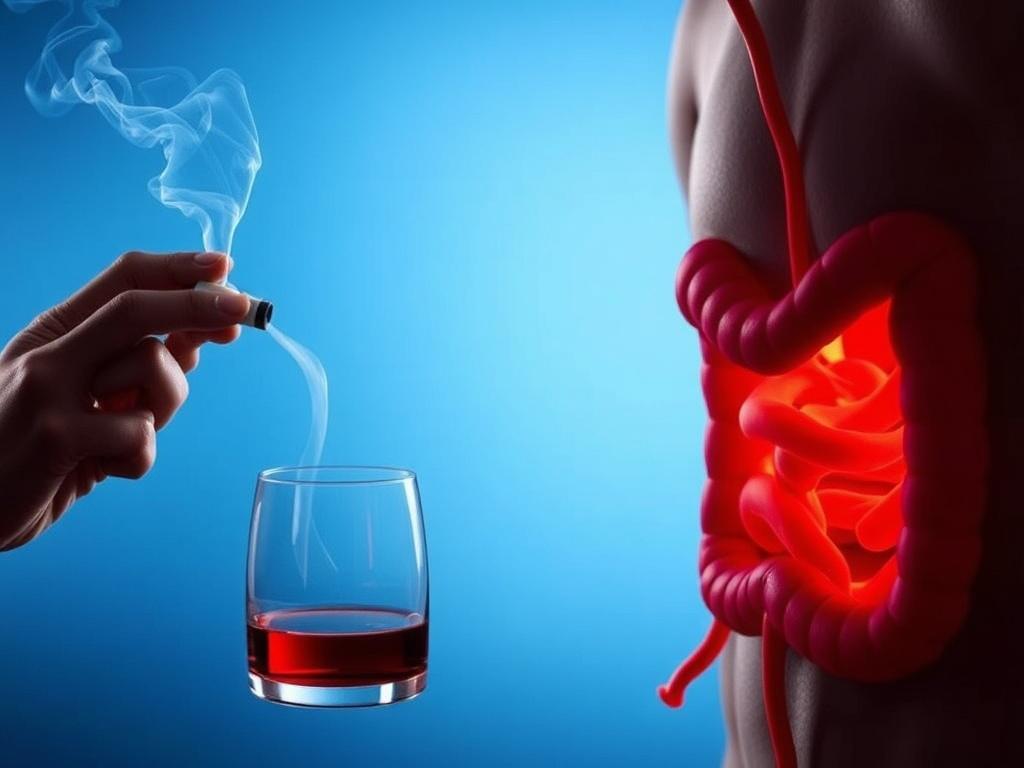
Gut damage doesn’t always produce immediate or obvious symptoms. Often, the slow decline leads to subtle warning signs that might be ignored or attributed to other causes. Here’s a list of common symptoms that indicate potential smoking- or alcohol-related intestinal harm:
- Frequent abdominal pain or cramping
- Bloating and excessive gas
- Diarrhea or constipation
- Unexplained weight loss
- Persistent nausea or vomiting
- Blood in stool or black, tarry stools
- Fatigue or weakness from malnutrition
- Loss of appetite or early satiety
- Frequent infections or slowed healing
If you experience any combination of these signs, especially in the context of smoking or heavy alcohol use, it’s important to seek medical advice.
How to Protect and Heal Your Intestines
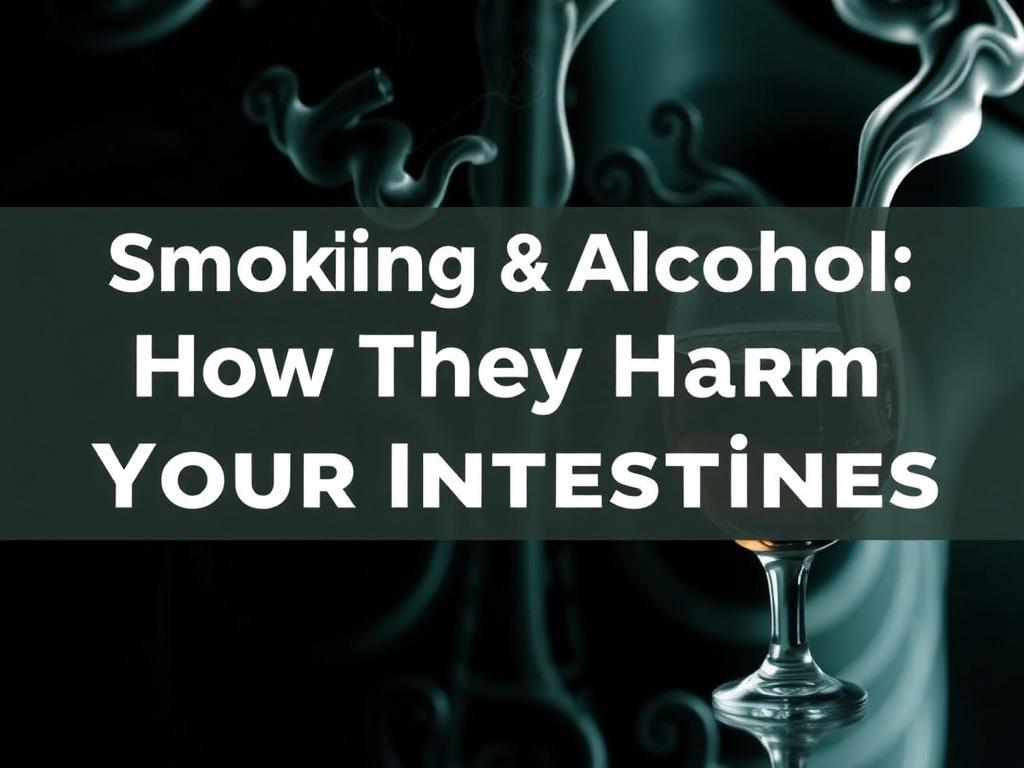
The good news is that your intestines can heal if given the right conditions and care. Whether you’re currently smoking or drinking or have a history of these habits, there are effective strategies to protect and restore gut health.
Quit Smoking and Reduce Alcohol Intake
The single most effective step toward healthy intestines is quitting smoking. It reduces inflammation, helps restore microbiota balance, and lowers the risk of intestinal disease. Similarly, moderating alcohol consumption—or abstaining if you have intestinal issues—protects the gut lining and improves nutrient absorption.
Adopt a Gut-Friendly Diet
Eating foods rich in fiber, antioxidants, and probiotics supports your intestinal health.
- Fiber-rich fruits and vegetables: Promote healthy bowel movements and feed beneficial bacteria.
- Fermented foods: Such as yogurt, kefir, sauerkraut, and kimchi, which introduce good bacteria into your gut.
- Whole grains and legumes: Help maintain a healthy gut environment.
- Healthy fats: Like omega-3 fatty acids from fish, which reduce inflammation.
- Limit processed and fried foods: To reduce irritation and inflammation.
Stay Hydrated
Water supports digestion, helps eliminate toxins, and maintains healthy mucus layers along your intestines. Aim for at least 8 cups a day, more if you engage in physical activity.
Manage Stress and Exercise Regularly
Stress can disrupt gut function and worsen symptoms. Mindfulness, yoga, or even simple breathing exercises can help. Regular exercise also promotes healthy intestinal motility and reduces inflammation.
Consider Probiotics and Supplements
Probiotic supplements can aid in restoring a healthy gut microbiome, especially after quitting smoking and alcohol cessation. Additionally, vitamins and minerals might be necessary to correct deficiencies resulting from intestinal damage, but always check with a healthcare provider first.
Medical Interventions and When to Seek Help
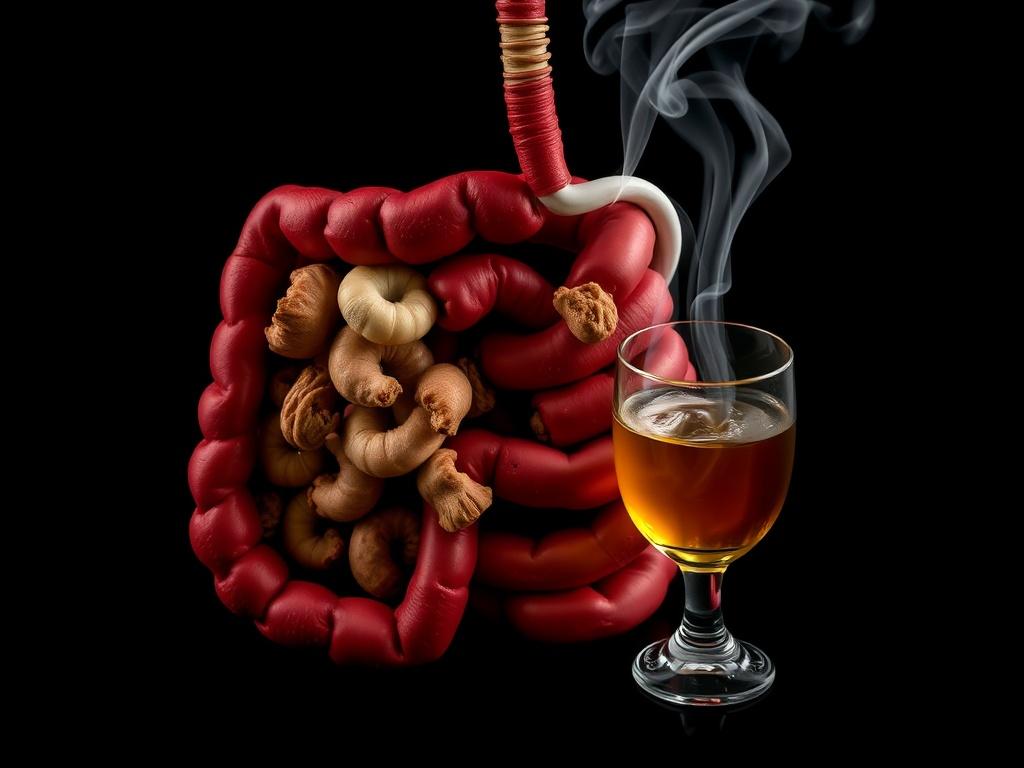
If symptoms persist or worsen, undergoing diagnostic tests such as endoscopy, colonoscopy, or stool analysis might be necessary to assess intestinal damage and rule out serious diseases. Conditions like Crohn’s disease or colorectal cancer require specialized treatment beyond lifestyle changes.
Medications may include anti-inflammatory drugs, antibiotics for infections, or medications to improve motility. For those struggling to quit smoking or alcohol, professional counseling or support groups can drastically improve success rates and overall health.
Smoking and Alcohol: Effects on Intestinal Health at a Glance
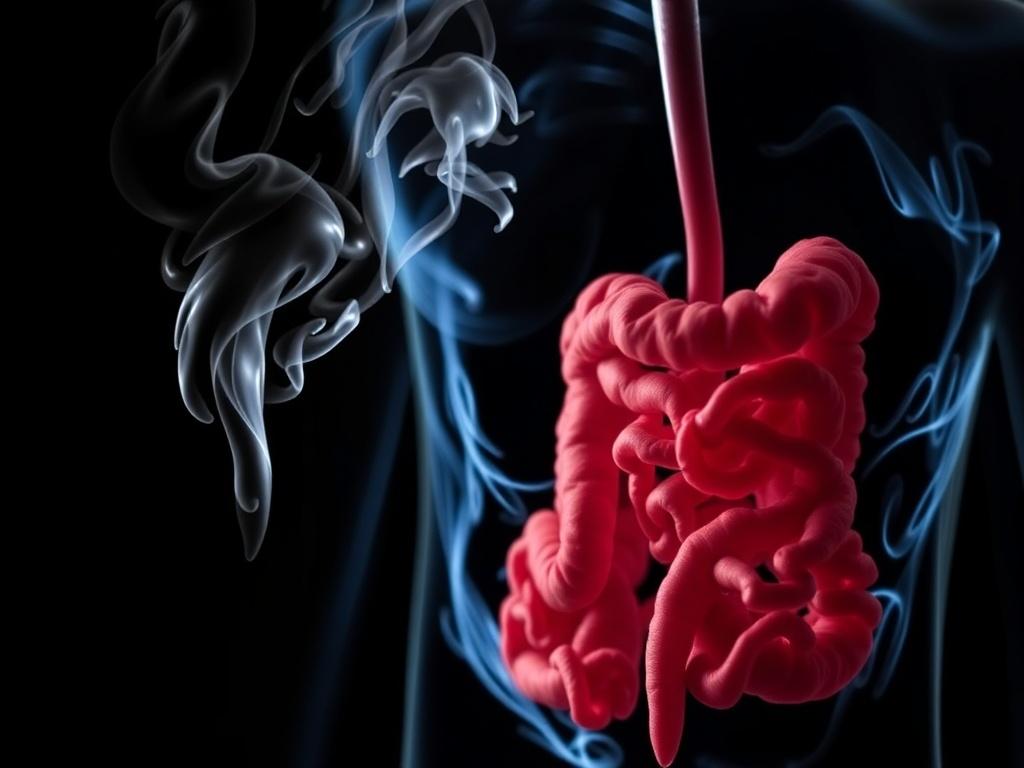
| Aspect | Smoking | Alcohol |
|---|---|---|
| Gut Microbiota | Decreases beneficial bacteria, increases harmful bacteria | Disrupts microbial balance, promotes dysbiosis |
| Intestinal Lining | Causes inflammation and leaky gut | Damages mucosal lining, increases permeability |
| Motility | Slows intestinal transit | Causes irritation, affecting digestion speed |
| Disease Risk | Increased risk of Crohn’s disease, colorectal cancer | Higher risk of ulcers, pancreatitis, colorectal cancer |
| Symptoms | Bloating, pain, diarrhea, constipation | Abdominal pain, nausea, diarrhea |
Conclusion
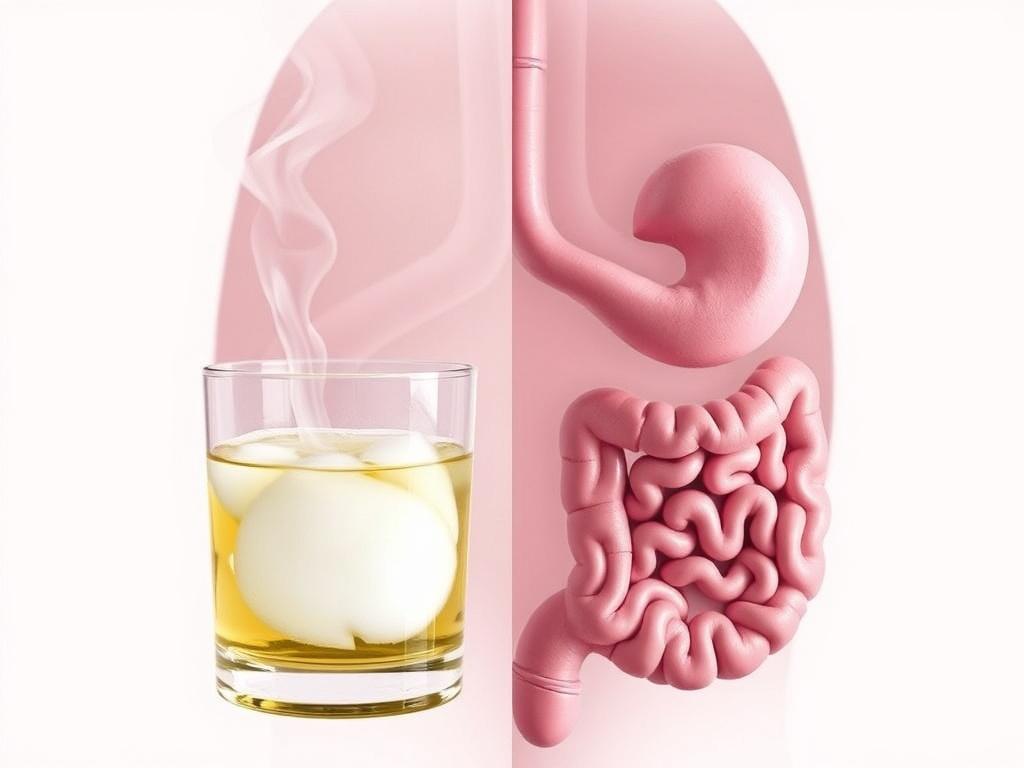
Understanding how smoking and alcohol harm your intestines shines a spotlight on a much-neglected aspect of gut health. The intestines are more than just digestion machines—they are central to your immunity, nutrient absorption, and overall wellness. Both smoking and alcohol disrupt this delicate ecosystem by altering gut microbiota, increasing inflammation, damaging the intestinal lining, and raising the risk of serious diseases like Crohn’s disease and colorectal cancer. The good news is that with awareness, lifestyle changes, and medical support, it’s possible to protect and even heal your intestines. Quitting smoking, reducing alcohol intake, embracing a gut-friendly diet, staying hydrated, and managing stress are critical steps. If you notice digestive symptoms or have a history of these habits, don’t hesitate to seek medical advice and safeguard your most essential organ: your gut. Your intestines will thank you.
Читайте далее:

